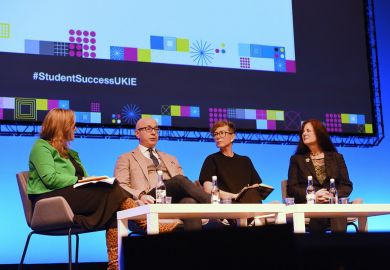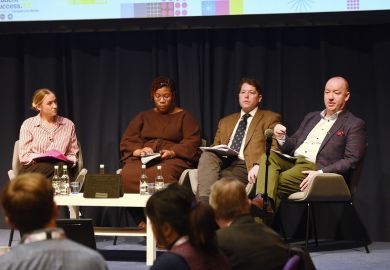Doctors make good university bosses because they are prepared to take action before they have all the answers, the Times Higher Education Leadership and Management Summit has heard.
Former University of Cape Town vice-chancellor Max Price began his career studying medicine, and he said a “disproportionate number” of university chiefs had followed the same path. Despite some colleagues’ complaints that this was a waste of training, he argued that medicine was good preparation for senior management.
“In a clinical environment, you have to make decisions,” Dr Price told the event, hosted by City University of Hong Kong. “You have to make decisions given limited information.
“You try a treatment, and if it works, that’s good; but if it doesn’t, you try something else. That level of comfort with uncertainty, the ability to make decisions anyway, was helpful to me.”
Comfort with uncertainty was not the “default position” for most academics, who “only publish something when you’ve…explored the issues thoroughly and you’re at a point where you can commit to something”, he added.
University of Western Australia vice-chancellor Dawn Freshwater, who also began her career as a health professional, said vice-chancellors naturally sought the best evidence available. “But the last thing you want is for [someone] to start looking through the evidence on the side of the road while you’re bleeding to death.”
Professor Freshwater said universities benefited from the “constructive wisdom that comes from different environments and different ways of thinking about problems”. She criticised a tendency in academic circles to describe all difficulties as emergencies. “Unless you need a defibrillator, there’s no such thing as an emergency.”
There is also no such thing as an “oven-ready vice-chancellor” and no ideal background for the job, she added. “Leading academics are not always the best academic leaders.”
But Professor Freshwater said appointed vice-chancellors had advantages over those elected from within academic ranks. “If you’re elected, most often you have to go back into the environment,” she said. “And that’s not easy.”
THE chief knowledge officer Phil Baty said elections could result in risk-averse leaders, because at the end of their term they “obviously have to go and face up to [their] decisions back at the front line of research.”
University of Stuttgart rector Wolfram Ressel acknowledged that the approach in Germany, where all university presidents are elected, had drawbacks. “You are elected for six to eight years and you can be re-elected, but normally you go back to the faculty. And then the problems begin.”
Professor Ressel joked that the ideal age for an elected university president was 55. “You get two terms and then you retire.” But he pointed out that the German university tradition had endured for almost as long as the church. “It’s a big tradition and an old tradition, and it works.”
Dr Price said that while there was “virtue” in 600-year-old traditions, elections risked becoming popularity contests. While appointments were preferable, they should not be indefinite, he added, saying 10 years was a “good limit” for a university leader’s term. “People get stale, and they also get too powerful,” he said.
Dr Price criticised a trend towards shorter terms, especially in systems where leaders were elected, saying that vice-chancellors needed time to “learn the ropes” and implement their visions. “If you’re out in three or four years, that really undermines the possibilities of leadership.”
POSTSCRIPT:
Print headline: Medicine is good training for v-cs
Register to continue
Why register?
- Registration is free and only takes a moment
- Once registered, you can read 3 articles a month
- Sign up for our newsletter
Subscribe
Or subscribe for unlimited access to:
- Unlimited access to news, views, insights & reviews
- Digital editions
- Digital access to THE’s university and college rankings analysis
Already registered or a current subscriber?










